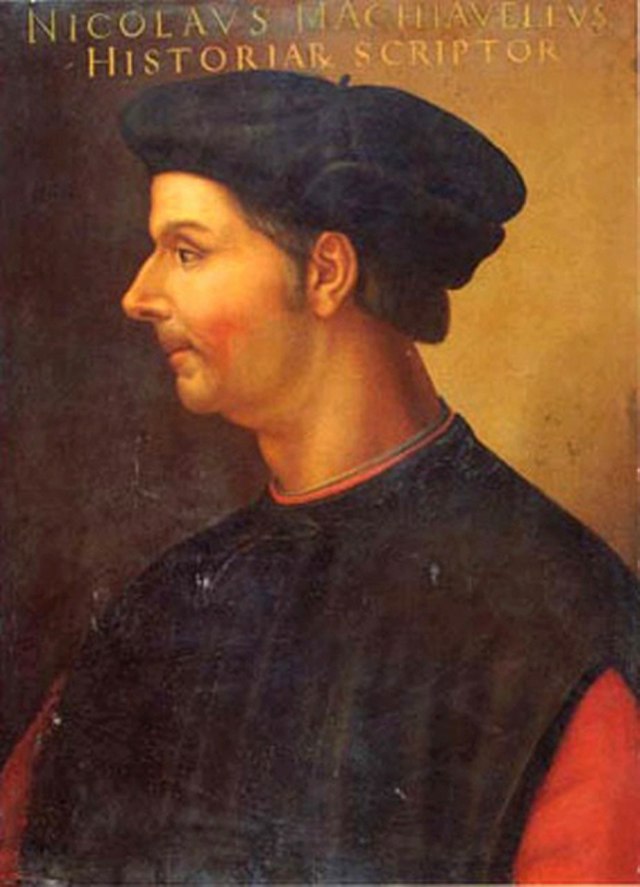A Summary of The Prince by Niccolò Machiavelli Part 3
October 2nd 2023
1350 words

Intro
The Prince can seem so absurd to some that it has also been considered that perhaps Machiavelli was being satirical. Some of the most infamous leaders such as Benito Mussolini and Joseph Stalin used some of Machiavelli’s teachings in their own rule. The summary of The Prince continues with part three. This post will cover chapters 12 through 16.Chapter XII: How Many Kinds of Soldiery Are There, and Concerning Mercenaries
“And the main foundations of any state, whether it be new, or old, or a new territory acquired by an old regime, are good laws and good armed forces.”
First things first, let’s look at the first chapter of this part, chapter twelve. Machiavelli starts out by writing that it is important to have a strong state with good laws and good armies. One cannot have good laws without having a good army. Thus, He argues that a good army indicates good laws. There are three different types of armies that Machiavelli identifies. They include the prince's own troops, mercenary troops, and auxiliary troops. Each of these groups will be looked into in future chapters of The Prince.Up front, Machiavelli argues that Mercenary and auxiliary troops are both useless and dangerous. This is because their motivation is financial gain not allegiance to the prince’s state. They are also considered not effective in battle and have low morale. Afterall, they aren’t fighting for the patriotism or survival, but only to make some money. If the battle looks as if it is going poorly, mercenaries are always likely to just leave or give up the battle. Mercenary commanders are either skilled or unskilled. Like one would think, unskilled commanders are useless. A skilled commander has his own ambitions and should not be trusted. Overall, Machiavelli, believes it is most preferable for a prince to command his own army. The one person you can trust to not kill you is you.
Chapter XIII: Concerning Auxiliaries, Mixed Soldiery, and One’s Own
“Auxiliary armies – that is, when you ask a powerful ruler to send military help to defend your town – are likewise useless.”
Chapter thirteen is the next chapter to be examined. Auxiliary troops are armies utilized by borrowing them from a more powerful state. Auxiliary troops are as useless as mercenaries according to Machiavelli. Though, they do tend to fight well, unlike mercenaries. The Auxiliary soldiers at least have the reputation of their own country to keep in mind. Mercenaries only care about themselves getting paid. Calling for auxiliary creates a no-win situation for a prince. This is because if they fail, it leaves you defenseless, but if they are successful the prince will owe his victory to another prince. It is for this reason that Machiavelli argues that auxiliary soldiers may even pose a greater threat to the prince than mercenaries. That being said, auxiliary troops tend to be skilled and well organized. Mercenary and auxiliary troops can be effective during times of prosperity. However, during times of adversity reliance on either of these kinds of troops is similar to relying on good fortune to win the day. Overall, Machiavelli repeats that a prince should command his own troops.Chapter XIV: That Which Concerns a Prince on the Subject of the Art of War
“And there is no reason why a man who commands an armed force should willingly obey a man who doesn’t, or why a man who doesn’t command an army should live safely beside a servant who does.”
Chapter fourteen is mostly concerned with military matters. Machiavelli says that the prince’s main form of study should be the art of war. Understanding the art of war can make even a common citizen become a great ruler. The easiest way to lose a state is not understanding or being negligent with the art of war. On the flip side, the best way to win a state is in understanding the art of war. As a side note, I will eventually cover Sun Tzu’s The Art of War in another summary series, but for now, let’s finish Machiavelli’s The Prince. This concept for the importance of understanding the art of war leads to Machiavelli's analogy between the unarmed man and the armed man.Say there is two men, one man is armed with a weapon, while the other is unarmed. It would be foolish for an armed man to listen to an unarmed man. Likewise, the unarmed man isn’t going to feel safe if his servants are armed. The unarmed man is going to constantly be suspicious of the intentions of the armed man. This will lead to an air of contempt between the two men. This would obviously make any cooperation impossible.
Being a leader who doesn’t understand the art of war is like being an unarmed man amongst armed men. Machiavelli goes on to say the prince should learn geography and its effect on a battle strategy. He also discusses the necessity of reading history, as it is important so that the prince can understand the actions of past great leaders. The prince can learn from success or failures of the past. During peace time it is important for the prince to not just ignore the ideas of war but rather to be prepared for when war comes. As war will always rear its ugly head eventually.
Chapter XV: Concerning Things for which Men, and Especially Princes, Are Praised or Blamed
“Hence, if a ruler wants to survive, he’ll have to learn to stop being good, at least when the occasion demands.”
Chapter fifteen is another relatively short chapter. The Prince, as a book tends to have short chapters, but some are impressively short. This chapter has a concentration on Machiavelli focus on 'correct behavior.' This is still a practical look rather than a theoretical look. This is a break from the norm at the time, as most philosophers would discuss an idealized view of what should be while Machiavelli focuses on what is. Machiavelli understands that no prince ever lives every part of their life virtuously. This is, of course, true of people in general. Instead of trying to live completely virtuous, the prince should act virtuous to reap the most practical benefits.It is worth saying, as Machiavelli points out, that while some characteristics are praised by some people, others will condemn them. Courage, compassion, faith, craftiness, and generosity are some qualities that might be praised. On the other hand, cowardice, cruelty, stubbornness, and miserliness are condemned. It is of Machiavelli’s opinion that the prince should possess all good qualities, but again this is unrealistic. As it would be for any common person. However, it is important to not to create vices out of bad characteristics as those will endanger the state. The prince's first job is to safeguard the state, and sometime having qualities that are condemned is necessary to achieve this end. It is important for the prince to not be influenced by the condemnation of others, but rather results of their actions.
Chapter XVI: Concerning Liberality and Meanness
“All the same, being generous just to be seen to be so will damage you.”
We now will look into the last chapter for this part, chapter sixteen. While generosity is a quality most would admire, Machiavelli argues it will ruin a prince's state. It is as if a person trying to be overly generous by giving away all that they have. Generosity may at first be seen as a virtue, but can turn into something to be condemned as well. Bit by bit generosity can eventually deplete all the prince's resources. A reputation for generosity tends to require outward lavishes.Machiavelli argues generosity will more than likely lead to the burden to be place on the people. This may take the form of things like over taxing his subjects to afford such a reputation. The prince’s liberality will lead to the people resenting the prince because of the burdens such generosity leads to on the other side. Also, if the prince tries to change his reputation away from being so generous, the people will probably see the prince as becoming a miser. A prince who remains frugal will have enough funds to defend the state from aggression and fund projects. At first the prince who is frugal may be seen as a miser, but will eventually be seen as generous. Put simply, generosity may be loved by the people at the beginning but will eventually lead to hatred by the people.
